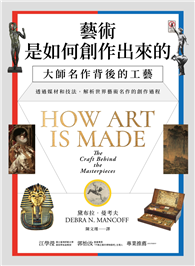Matthew Arnold begins his 1888 Civilization in the United States with a lengthy discourse on Ulysses S. Grant. Acknowledging that Grant, while wildly popular in the U.S., had received little attention in England--often over-shadowed by the more popular Robert E. Lee in commentary on the American Civil War--Arnold found Grant to be a rare man of virtue, a man able to "confront and resist popular clamor." Arnold then goes on to provide "A Word About America" in which he confirms his belief that Americans are "English people on the other side of the Atlantic." While understanding and foreshadowing the influence America will have in international relations, Arnold criticizes America for its sense of self-importance. He believes that Americans believe themselves to be better educated, more intellectual, and clearer thinking than other nations and that this belief will make the U.S. weak. Arnold also finds there to be a much greater need for public, social criticism ("tall talk and self-gratification meets with hardly any rebuke from sane criticism") and that America’s inability to confront its own social issues will eventually undermine society. Arnold also provides a scathing critique of American newspapers. This thoughtful discussion of American culture and character reverberates with issues relevant to the modern world.
| FindBook |
有 1 項符合
Civilization in the United States: First and Last Impressions of America的圖書 |
 |
Civilization in the United States: First and Last Impressions of America 作者:Arnold 出版社:Applewood Books 出版日期:2003-01-30 語言:英文 規格:平裝 / 212頁 / 23.4 x 15.2 x 1.3 cm / 普通級 |
| 圖書館借閱 |
| 國家圖書館 | 全國圖書書目資訊網 | 國立公共資訊圖書館 | 電子書服務平台 | MetaCat 跨館整合查詢 |
| 臺北市立圖書館 | 新北市立圖書館 | 基隆市公共圖書館 | 桃園市立圖書館 | 新竹縣公共圖書館 |
| 苗栗縣立圖書館 | 臺中市立圖書館 | 彰化縣公共圖書館 | 南投縣文化局 | 雲林縣公共圖書館 |
| 嘉義縣圖書館 | 臺南市立圖書館 | 高雄市立圖書館 | 屏東縣公共圖書館 | 宜蘭縣公共圖書館 |
| 花蓮縣文化局 | 臺東縣文化處 |
|
|
圖書介紹 - 資料來源:博客來 評分:
圖書名稱:Civilization in the United States: First and Last Impressions of America
|











